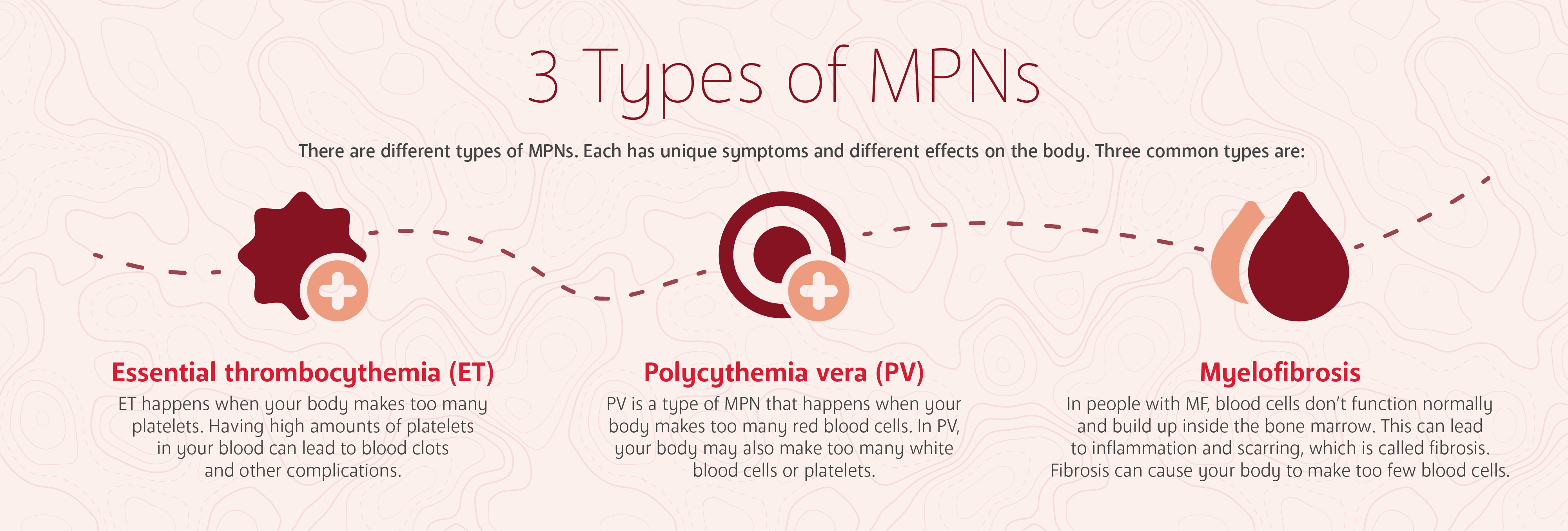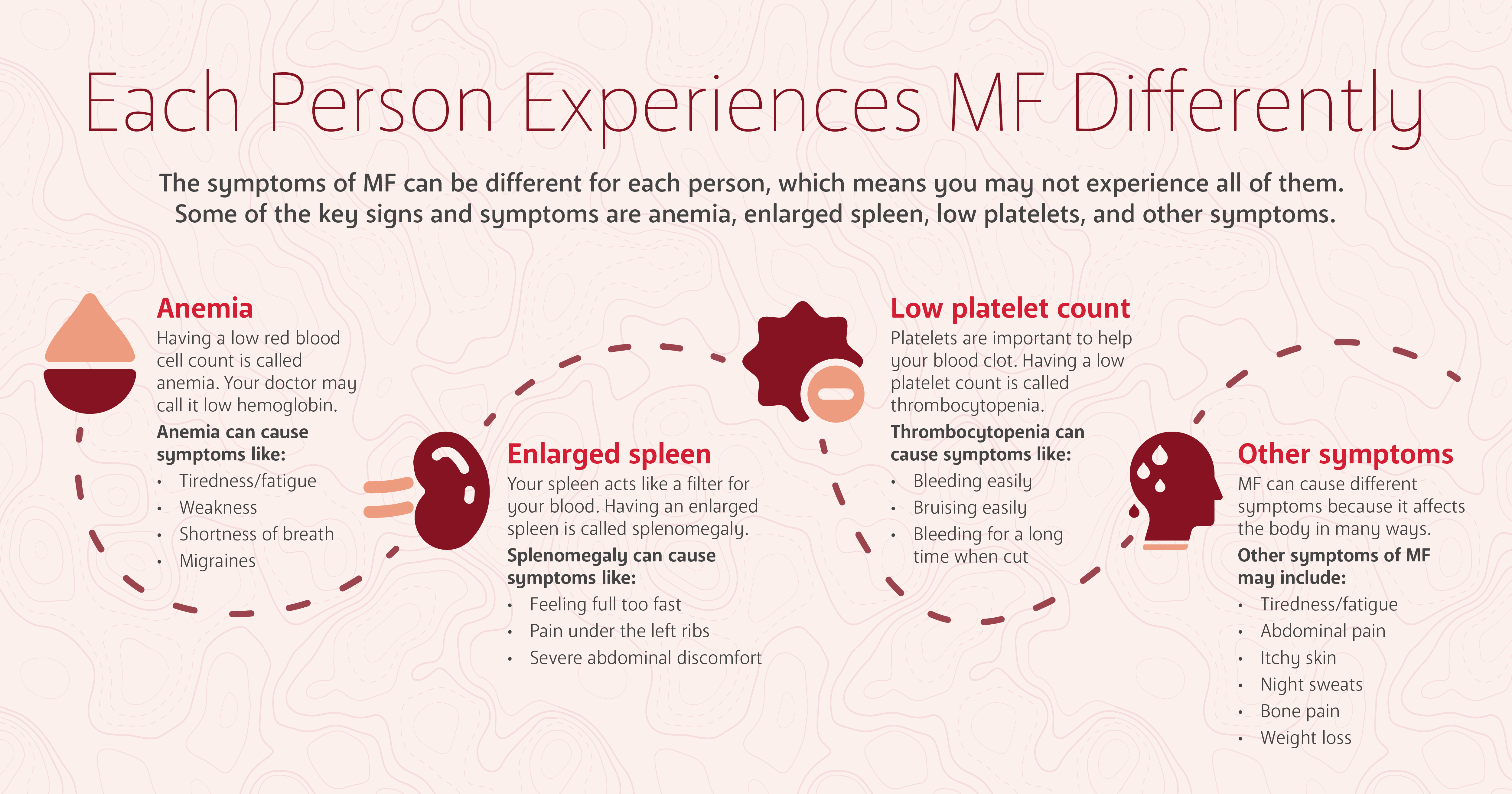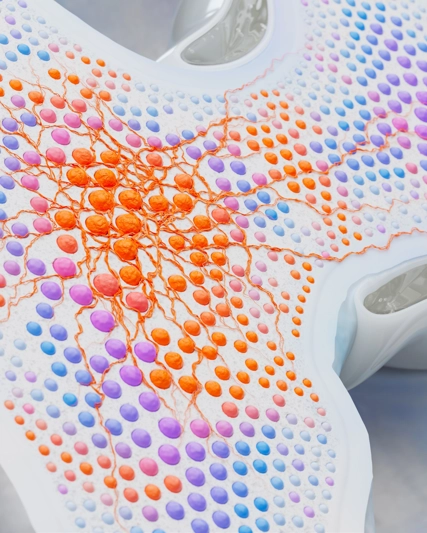Mapping Myelofibrosis
You play a key role in navigating your experience or your loved one’s experience with MF. Explore this complex blood cancer here.

Myelofibrosis (my-ah-lo-fye-BRO-sis) (MF) is a complex blood cancer. It is part of a bigger group of blood cancers called myeloproliferative neoplasms, or MPNs. Each person experiences myelofibrosis differently – and navigating the symptoms can be daunting. Those affected by myelofibrosis may find themselves in uncharted territory, feeling isolated, lost and unsure where to turn to for education, resources and support.
..............................................................................................................................................................................................................................................................................................
Mapping Myelofibrosis was created to increase awareness of this blood cancer, which can be difficult to diagnose. Whether you, or someone you care for, has been living with this disease for years, or is experiencing symptoms without a diagnosis, Mapping Myelofibrosis connects the community with educational tools, resources, and stories to help navigate all aspects of the disease.
- For those who have not been diagnosed, early detection of the disease may be beneficial.
- For those who have been diagnosed, understanding your symptoms is key to making informed decisions with your healthcare providers.
This initiative is being developed with input from MPN Research Foundation (MPNRF)* and MPN Advocacy & Education International (MPN A&E)
MPNRF is an independent body bringing together the voices of the patients and their caregivers living with an MPN and the researchers and clinicians seeking answers for MPN patients. MPNRF supports multiple efforts to increase awareness of MPNs and advancements of all validated, promising, and impactful approaches to better outcomes for patients.
MPN A&E International provides educational programs, materials, and resources for patients, caregivers, physicians, and entire healthcare teams to improve their understanding of myelofibrosis, polycythemia vera, and essential thrombocythemia. They are dedicated to making a difference in the lives of those affected by MPNs and strive to grow awareness and advocate on behalf of the entire MPN community.
Mapping Myelofibrosis Podcast
The Mapping Myelofibrosis podcast is sponsored by GSK. Through conversations with a variety of guests across the myelofibrosis community, our aim is to shed light on the significant medical needs patients face and deliver helpful tips for patients, caregivers, and advocates alike.
Our first episode features Cheryl Petruk, Executive Director and Founder of the Canadian MPN Research Foundation and also Executive Director of the Canadian MPN Network. Watch below as Cheryl shares her husband’s journey with myelofibrosis as well as her own perspective as a caregiver. Stay tuned for more conversations as part of the ongoing Mapping Myelofibrosis program.


Your Myelofibrosis Guide
Download and print the Myelofibrosis Guide so that you have important information about myelofibrosis at your fingertips.
What is myelofibrosis?
Myelofibrosis is a rare blood cancer. In the U.S., approximately 25,000 people are affected by myelofibrosis. Myelofibrosis is part of a bigger group of blood cancers called myeloproliferative neoplasms, or MPNs. MPNs affect the blood and bone marrow, which is the spongy tissue inside your bones.

Mapping Myelofibrosis with Dr. John Mascarenhas
Myelofibrosis is a chronic condition, which means that it will require management over time. By working with your healthcare team, you may be able to better navigate your symptoms. Listen as Dr. John Mascarenhas, a hematologist oncologist, explains what myelofibrosis is, how it presents and how it is diagnosed.
Exploring the signs & symptoms
Each person experiences MF differently with varying symptoms. In the early stages, approximately 1/3 of people impacted by myelofibrosis do not have any symptoms of the disease.
Additionally, the list below is not comprehensive of all the symptoms people may experience. It is important to keep track of any new or worsening symptoms, and share those with your healthcare professional, as they may be a sign of initial disease or disease progression.

No matter what symptoms you may experience, they can have a significant impact on your daily life. Tracking and understanding your symptoms is one way to chart your course with the disease and explore disease management with your healthcare team.
Arriving at a diagnosis
Healthcare providers use the following tests and procedures to diagnose myelofibrosis:
Physical Exam
A physical exam may include a check of your vital signs, such as pulse and blood pressure, along with checks of the lymph nodes, spleen and abdomen.
Blood Tests to Check for Low Blood Cell and Platelet Counts
One test looks at your complete blood count, which may show red blood cell levels below the normal range, indicating potential anemia. White blood cell and platelet counts are also looked at and may be higher or lower than normal in some people.
Imaging Tests
Imaging tests such as X-rays, ultrasounds and MRIs may help your doctor determine more information about your MF. Your doctor will review your scans to look for the following, which may lead to a diagnosis of MF: lymphadenopathy (lymph node enlargement), osteosclerosis (generalized increased bone density), hepatomegaly (enlargement of the liver) and/or splenomegaly (enlargement of the spleen).
Bone Marrow Biopsy and Aspiration
A sample of bone tissue and marrow from your hipbone is taken out using a needle. Another type of needle may also be used during the procedure to take a sample of the liquid portion of your bone marrow. The samples are studied in a laboratory to determine the numbers and types of cells found.
Biomarker Testing
Biomarker testing is used to find biomarkers, or medical signs such as genes and proteins, that may provide information about cancer. Biomarker testing is an additional tool that can be used by healthcare providers to determine treatment options that may be right for certain patients. It can be done on a bone marrow sample to help to rule out chronic myelogenous leukemia, myelodysplastic syndrome or other chronic myeloid disorders. It can also be done via a blood draw ordered by your healthcare provider.

Living with Myelofibrosis
Whether you’ve been living with MF or are newly diagnosed, this guide can provide strategies for understanding your disease and offer tips for telling others.

MF Nutritional Considerations Resource & Recipes
This cookbook offers healthy eating options to people with or managing myelofibrosis.

What to Eat Info Sheet
Information sheet for those impacted by myelofibrosis, which includes foods to consider and limit.
*MPN Research Foundation is an independent body bringing together the voices of the patient and their caregivers living with a MPN and the researchers and clinicians seeking answers for MPN patients. MPNRF supports multiple efforts to increase awareness of MPNs and advancements of all validated, promising, and impactful approaches to better outcomes for patients.
Trademarks are property of their respective owners.
This website is funded and developed by GSK.
This site is intended for US residents only.
2023 GSK or licensor. MMLCOCO230017 August 2023
Produced in USA.



